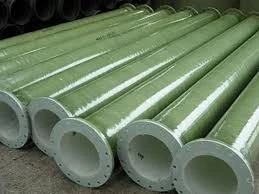
-
 Afrikaans
Afrikaans -
 Albanian
Albanian -
 Amharic
Amharic -
 Arabic
Arabic -
 Armenian
Armenian -
 Azerbaijani
Azerbaijani -
 Basque
Basque -
 Belarusian
Belarusian -
 Bengali
Bengali -
 Bosnian
Bosnian -
 Bulgarian
Bulgarian -
 Catalan
Catalan -
 Cebuano
Cebuano -
 China
China -
 China (Taiwan)
China (Taiwan) -
 Corsican
Corsican -
 Croatian
Croatian -
 Czech
Czech -
 Danish
Danish -
 Dutch
Dutch -
 English
English -
 Esperanto
Esperanto -
 Estonian
Estonian -
 Finnish
Finnish -
 French
French -
 Frisian
Frisian -
 Galician
Galician -
 Georgian
Georgian -
 German
German -
 Greek
Greek -
 Gujarati
Gujarati -
 Haitian Creole
Haitian Creole -
 hausa
hausa -
 hawaiian
hawaiian -
 Hebrew
Hebrew -
 Hindi
Hindi -
 Miao
Miao -
 Hungarian
Hungarian -
 Icelandic
Icelandic -
 igbo
igbo -
 Indonesian
Indonesian -
 irish
irish -
 Italian
Italian -
 Japanese
Japanese -
 Javanese
Javanese -
 Kannada
Kannada -
 kazakh
kazakh -
 Khmer
Khmer -
 Rwandese
Rwandese -
 Korean
Korean -
 Kurdish
Kurdish -
 Kyrgyz
Kyrgyz -
 Lao
Lao -
 Latin
Latin -
 Latvian
Latvian -
 Lithuanian
Lithuanian -
 Luxembourgish
Luxembourgish -
 Macedonian
Macedonian -
 Malgashi
Malgashi -
 Malay
Malay -
 Malayalam
Malayalam -
 Maltese
Maltese -
 Maori
Maori -
 Marathi
Marathi -
 Mongolian
Mongolian -
 Myanmar
Myanmar -
 Nepali
Nepali -
 Norwegian
Norwegian -
 Norwegian
Norwegian -
 Occitan
Occitan -
 Pashto
Pashto -
 Persian
Persian -
 Polish
Polish -
 Portuguese
Portuguese -
 Punjabi
Punjabi -
 Romanian
Romanian -
 Russian
Russian -
 Samoan
Samoan -
 Scottish Gaelic
Scottish Gaelic -
 Serbian
Serbian -
 Sesotho
Sesotho -
 Shona
Shona -
 Sindhi
Sindhi -
 Sinhala
Sinhala -
 Slovak
Slovak -
 Slovenian
Slovenian -
 Somali
Somali -
 Spanish
Spanish -
 Sundanese
Sundanese -
 Swahili
Swahili -
 Swedish
Swedish -
 Tagalog
Tagalog -
 Tajik
Tajik -
 Tamil
Tamil -
 Tatar
Tatar -
 Telugu
Telugu -
 Thai
Thai -
 Turkish
Turkish -
 Turkmen
Turkmen -
 Ukrainian
Ukrainian -
 Urdu
Urdu -
 Uighur
Uighur -
 Uzbek
Uzbek -
 Vietnamese
Vietnamese -
 Welsh
Welsh -
 Bantu
Bantu -
 Yiddish
Yiddish -
 Yoruba
Yoruba -
 Zulu
Zulu
frp storage tank
The Importance of FRP Storage Tanks in Modern Industries
In the contemporary industrial landscape, the need for efficient and safe storage solutions has never been more critical. One of the innovative solutions that have gained significant traction is the use of Fiber Reinforced Plastic (FRP) storage tanks. Known for their lightweight, durability, and resistance to corrosion, FRP tanks have transformed storage practices across various sectors including chemical, oil and gas, water treatment, and food processing industries.
Understanding FRP Tanks
FRP, or Fiber Reinforced Plastic, is a composite material made by combining plastic with reinforcing fibers, commonly glass or carbon. This unique composition gives FRP tanks remarkable strength and resilience compared to traditional storage options like steel or concrete. The manufacturing process involves layering plastic resins and fiberglass, offering a versatile solution that can be fabricated into various shapes and sizes to fit specific storage needs.
Key Benefits of FRP Storage Tanks
1. Corrosion Resistance One of the standout features of FRP storage tanks is their resistance to corrosion. Traditional materials like steel are susceptible to rust and degradation when exposed to harsh chemicals or environmental conditions. In contrast, FRP tanks can withstand extreme conditions without compromising their structural integrity, making them ideal for storing corrosive substances.
2. Lightweight Construction The lightweight nature of FRP tanks simplifies transportation and installation. This characteristic reduces overall logistical costs and time, making it a convenient option for many industries that require mobility in storage solutions.
frp storage tank

3. Customizability FRP tanks can be custom-built to meet specific requirements regarding size, shape, and functionality. This flexibility allows industries to optimize their storage space effectively, accommodating different storage volumes and types of materials.
4. Thermal Insulation Due to their composition, FRP tanks offer excellent thermal insulation properties. This feature is particularly beneficial in industries where temperature regulation is crucial to maintaining the quality of stored materials, such as in food processing or chemical storage.
5. Environmentally Friendly As global industries shift towards sustainable practices, FRP storage tanks represent an eco-friendly alternative. The materials used in FRP tanks can often be sourced sustainably, and their longevity further reduces the need for frequent replacements, minimizing environmental impact.
Applications of FRP Storage Tanks
The versatility of FRP tanks allows them to be utilized across various sectors. In the chemical industry, they are employed for storing acids, bases, and other corrosive substances safely. Water treatment facilities utilize FRP tanks for both storing and managing chemicals needed for purification processes. In the food industry, these tanks play a crucial role in storing ingredients and finished products without the risk of contamination.
Conclusion
In summary, the rising adoption of FRP storage tanks reflects a broader movement towards more efficient, safe, and sustainable storage solutions across industries. Their resistance to corrosion, lightweight nature, and customizability position them as a superior choice for modern storage needs. As industries continue to evolve and demand innovative solutions, FRP storage tanks will undoubtedly remain at the forefront, driving advancements in safe and effective material handling. The future of industrial storage is wisely leaning towards the different and dynamic properties offered by Fiber Reinforced Plastic, paving the way for greater efficiency and sustainability.









